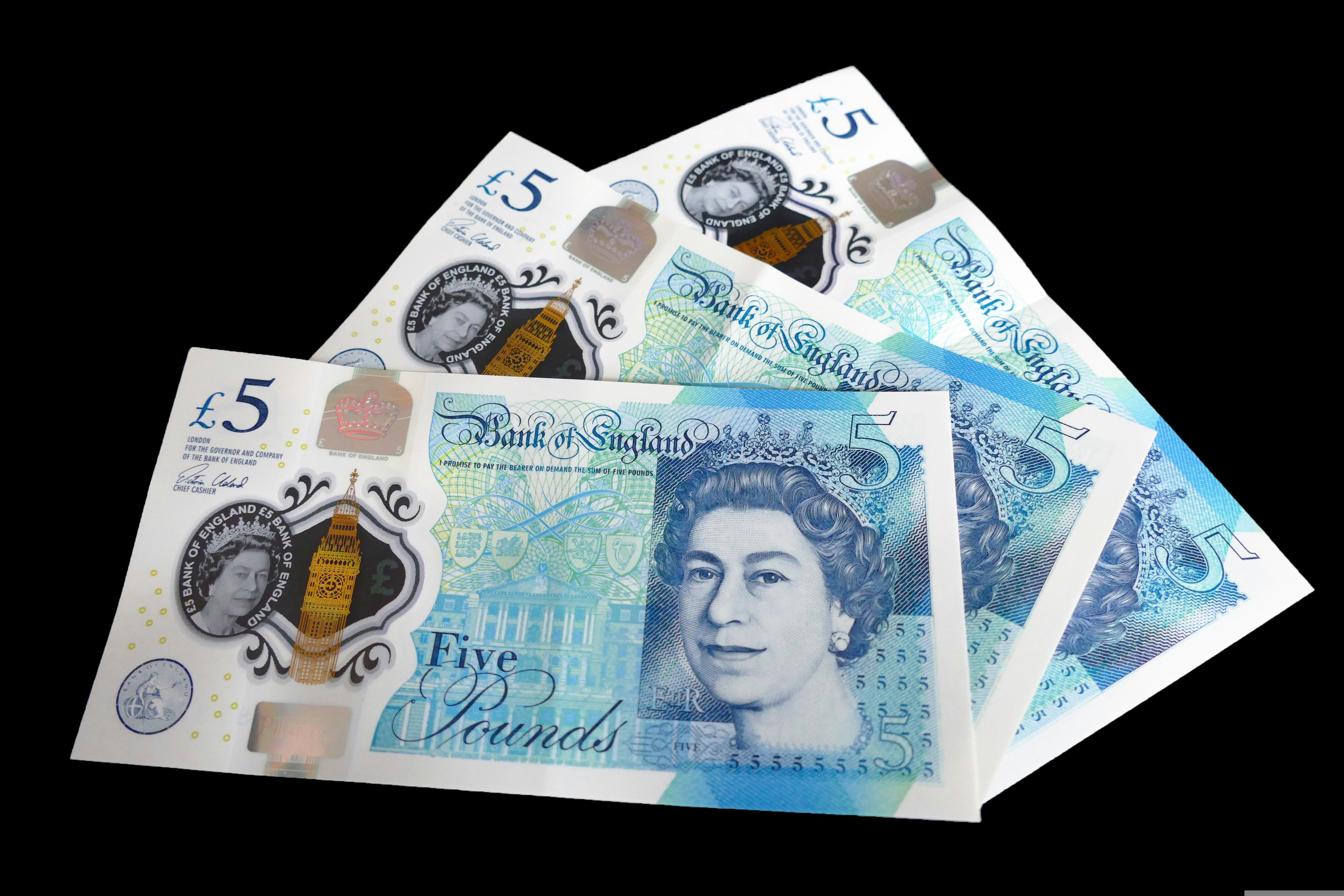Best Short Term Investments in 2024

In the recent years multiple economical instabilities have shocked the finance world discouraging investors from taking long-term decisions leading to great discomfort in the market. Factors like the constant rise of inflation, the recent unpredictable nature of financial markets, and worries about a recession, may force you to think that it is a tough time to think about investing.
However, keeping money in storage is an even riskier concept, as cash loses value due to inflation. Thus, short-term investments come like the golden solution by providing a practical option, ensuring security and ease of access while also enabling your funds to increase. These investments are ideal for individuals who require quick access to their funds for short-term objectives and desire to generate a bit of interest at the same time.
In this article, we will delve into the characteristics of the best short term investment for 2024, their types and associated risks, ensuring a comprehensive understanding of this trading mechanism.
Table of Contents
Key Takeaways
What are Short-term Investments?
Safe Low-yield, Short-term Investments
What Makes a Good Short-term Investment?
Best Short-term Investments in 2024
Best Investments for Short-term Money
Tips for Investing Money for Five Years or Less
Bottom Line
FAQs
Key Takeaways
-
Short-term investments are essential in a volatile economy, offering security and liquidity.
- Best options include high-yield savings accounts, money market accounts, and short-term bond funds.
- Key attributes to look for are liquidity, capital preservation, and low fees.
- Prioritize safe and low-risk investments.
- Avoid high-risk options such as stocks and high-yield "junk" bonds for short-term goals.
What are Short-term Investments?
The definition of short-term investments is mostly based on the investor’s demand to have money at a specific time. Moreover, the ability to quickly convert assets into cash makes short-term investments an ideal trading tool for those who need fast access to funds. Some of the most popular short-term examples include high-yield savings accounts, money market accounts, and certificates of deposit, offered by banks for minimal risk.
For investments under two years, money market funds and treasury bills offer stable and reliable returns. For a period of two to three years, corporate bonds and short-term bond funds are ideal, providing higher returns than savings accounts with minimal risk. For three to five-year investments, mutual funds and government bonds are attractive, offering a balance of risk and return or steady interest rates backed by the government. It's crucial to balance liquidity needs, risk tolerance, and financial goals. Interest rate changes can affect returns, so staying informed about market trends is vital for successful investing.
This article discusses investment options based on specific time frames:
-
less than 2 years
- 2 to 3 year
- 3 to 5 years.
It breaks down various investments suitable for each time frame.
| Timeframe for Accessing Funds |
Investment Options |
Risk vs. Reward |
| < 2 years |
High-yield savings account. Money market account. |
Potential return: Up to 2% or more, depending on the account type. |
| 2-3 years |
Short-term bond funds. |
Medium risk, medium reward. Potential return: 3-5% depending on bond performance. |
| 3-5 years |
Corporate bonds. Mutual funds. |
Medium to high risk, higher reward. Potential return: 5% or more based on market conditions. |
Safe Low-yield, Short-term Investments
Balancing risk and return is essential in investing. Long-term investments like stocks and real estate offer increased profits but also carry higher risks, while secure, low-yield investments such as Treasury bills and money market accounts provide lower returns with less risk due to shorter durations in the market. These options are ideal for safeguarding capital and ensuring easy access to money market funds.
The basic principle of short-term investment involves the relation between the efficiency of managing risks and returns while spending less time in the market, by reducing exposure to the market’s volatility and mitigating potential high losses. Short-term investments provide lower returns than long-term investments that are riskier, necessitating individuals to find a balance between their investment strategy, financial goals, and risk tolerance.
Additionally, conservative investors seeking to grow their funds may consider safe and stable options such as high-yield savings accounts, CDs, and money market accounts for short-term investments. Short-term bond funds are another great option, offering stable rates and reliability in interest earnings.
To reduce risk, investors should maintain a diversified portfolio with a combination of high-yield savings accounts, regular savings accounts, and short-term bond funds. While these investments may not generate quick wealth, they offer security and protection of the original investment. It is advised to avoid riskier assets like stocks for short-term objectives and opt for traditional secure investments for stability.
What Makes a Good Short-term Investment?
Despite the fact that short-term investments are used by individuals as financial tools that allow them to grow their wealth with the smallest possible risk, they are ideal for goals like purchasing a new vehicle or saving for a vacation, where the access to your deposits has to be done relatively quickly.
A good short-term investment should have several key attributes:
-
Liquidity: One of the major positives that short-term investment has is the ability to easily access and withdraw funds without facing hefty fees or long waiting times, so that their investments can be quickly turned into cash.
- Capital Preservation: Reducing exposure to market volatility aids in safeguarding capital. Contrary to long-term investments, the aim is to preserve the initial amount rather than seeking significant growth.
- Suitability: For near-term financial goals, a low-risk tolerance is essential. These funds should not be exposed to potentially risky investments, ensuring the money is available when needed.
- Low Fees: Minimizing fees associated with investment accounts is crucial. Lower fees mean more principal remains in your account, increasing your overall return.
Best Short-term Investments in 2024

Some of the recommended short-term investments that have been distinguished in 2024 include high-yield savings accounts, CDs, and short-term bond funds. In the following sections we will delve into more details on those tools and how is the best way to exploit their benefits.
1. High-yield Savings Accounts
High-yield savings accounts are considered a much more efficient way to produce higher interest rates in comparison with traditional savings accounts. They are considered much more beneficial in the current moment since the constant increase of interest rates leads to their increased profitability. As far as it concerns online and traditional banks, they both provide such accounts, with the difference that online banks usually offer better rates since their operating expenses are much less than the traditional ones.
These accounts provide a better overseeing of the investor’s savings and emergency funds while the same time they offer higher interest rates compared to other deposit choices. Moreover, access to the funds is easier, releasing them from unforeseen costs or short-term objectives.
High-yield savings accounts offer a reliable and secure way to save money, ideal for those avoiding stock market risks. Including them in a diverse portfolio with government bond and short-term bond funds helps investors balance risk and returns effectively.
2. Cash Management Accounts
Cash Management Accounts are commonly known as financial tools that combine a plethora of characteristics such as checking, savings, and investment accounts. They are especially beneficial for people seeking a convenient way to send money and manage their finances effortlessly. CMAs are commonly provided by brokerage firms and fintech companies, functioning as omnibus accounts where clients' funds are combined into one account.
The primary benefit of CMAs is their excellent liquidity, enabling swift and convenient access to your funds. They provide competitive interest rates as well, making them an attractive choice for handling short-term funds. Moreover, numerous CMAs offer protection for deposits with FDIC insurance, guaranteeing the security of your funds up to the covered amount.
Nonetheless, it's crucial to stay informed about possible dangers, like varying interest rates and charges. In spite of this, CMAs continue to serve as a versatile asset for efficient cash management, offering the advantages of various financial products in a single, convenient account.
3. Money Market Accounts
A major benefit of money market accounts is that they provide a secure investment option. This is due to the FDIC insurance which is shaped up to $250,000, resulting in higher interest rates than regular savings accounts. While they offer greater returns than standard checking and savings accounts, they may have trade-offs such as lower rates compared to other short-term investments, minimum deposit requirements, balance criteria, and monthly maintenance fees.
Restrictions may also apply to transfers and withdrawals when referring to money market funds. Despite these drawbacks, money market accounts remain a versatile and safe way to manage cash in financial institutions. They offer stability, high-interest earnings, and are essential for a diversified portfolio.
4. Short-term Corporate Bond Funds
Short-term Corporate Bond Funds provide diversification and stable income while minimizing potential interest rate fluctuations. These investments consist of corporate bonds that mature within one to five years, offering a well-rounded strategy for bond investments. The liquidity provided by ETFs and mutual funds enables convenient transactions, leading to efficient cash management. Low-risk investors are offered moderate returns through professionally managed funds that pool money to purchase securities.
ETFs are bought and sold on stock markets and follow the performance of index funds or asset classes. Selecting funds with low management fees is important because these fees can affect returns. Even though these funds can generate income and add variety, they might yield less profit when compared to high-yield savings accounts or more adventurous investments. Conservative investors are advised to steer clear of high-yield "junk" bonds.
5. Short-term U.S. Government Bond Funds
Another secure choice to get involved with short-term investment is the U.S. Government Bond Funds, which are backed by the U.S. government. The main characteristic of such bonds is the high sense of security they offer. Moreover, they are considered steady investment choices with reliable returns. The high liquidity of the market gives investors an easier access to their funds, while they can buy bonds individually or through bond funds. This choice can diversify their portfolio securing them from risk management and providing steady interest earnings.
Last but not least, these bonds are perfect for managing cash and align with a conservative investment approach, providing safety and easy access to funds. While they may provide lower profits than riskier investments, their stability and ease of conversion to cash are essential components of a well-rounded investment portfolio.
6. Money Market Mutual Funds
Money Market Mutual Funds are different from money market accounts. They have an expense ratio set by the fund company and are suitable for investors looking for returns and liquidity. While safe, they lack FDIC insurance and can lose value in tough markets.
They offer stability with minimal investment changes and are easily accessible with options for check writing. Investors can buy them through mutual fund service brokers. Overall, Money Market Mutual Funds are traditional short-term investments meant to protect your money while providing some return potential.
7. No-penalty Certificates of Deposit
A no-penalty CD is a popular option for investors seeking higher interest rates and short-term flexibility. Unlike traditional CDs, you can withdraw your money early without any fees. This appeals to risk-averse individuals who value liquidity and interest profits.
No-penalty CDs are especially beneficial during rising interest rates as you can move your funds for better yields without penalties. They are protected by the FDIC and typically offer higher returns than savings and money market accounts. With guaranteed safety and liquidity benefits, these CDs reduce interest rate risk and provide a full return of the principal amount plus earned interest at the end of the term.
8. Treasurys
Treasurys like T-bills, T-bonds, and T-notes offer a safe return due to the U.S. government's AAA credit rating. T-bills are ideal for low-risk, short-term investments with maturities of one year or less. Purchasing individual Treasurys might be better than bond funds, as they are guaranteed by the government and not the FDIC insurance.
While T-bills are low-risk, they typically have lower returns. U.S. government bonds are easy to buy and sell with high liquidity. Treasurys can be purchased through TreasuryDirect.gov or brokers for flexible and secure investments.
Best Investments for Short-term Money
| Timeframe |
Investment Options |
Potential Interest Rate |
Risk Level |
| Up to 1 year |
High-yield savings, money market accounts, cash management accounts |
4.5% or higher |
Low risk, FDIC-insured accounts |
| 2 to 3 years |
Treasurys, bond funds, certificates of deposit (CDs) |
4.5% or higher |
Bank products and Treasurys are very safe, corporate bond funds are moderately safe |
| 3 to 5 years or more |
CDs, bonds, bond funds, and stocks for longer durations |
5.5% or higher (stocks may offer much higher returns) |
CDs and bonds are relatively low risk, stocks are high risk with potential for significant fluctuation |
Tips for Investing Money for Five Years or Less
When investing for five years or less, it's important to use a strategy suited for short-term investments. Here are some key tips to keep in mind:
-
Set Realistic Expectations: Understand that short-term investments usually offer lower returns compared to long-term options. Don’t expect high yields.
- Prioritize Safety: Since your investment horizon is short, focus on safe options where your principal is protected and your funds are accessible when needed.
- Avoid Unnecessary Risk: Don’t chase after slightly higher returns if it means taking on significantly more risk. Your primary goal should be preserving your capital.
- Choose Investments Based on Your Needs: High-yield savings accounts, money market accounts, and cash management accounts are excellent choices as they offer safety and liquidity. Many of these are FDIC insured, providing an extra layer of security.
- Understand the Differences: Not all short-term investments are created equal. While FDIC-backed products guarantee your principal, market-based products like short-term bond funds can fluctuate in value.
- Be Aware of Risks: Even short-term investments come with risks, especially related to interest rates. Make sure you understand these risks before committing your money.
Bottom Line
Short-term investments provide a convenient option for handling your money in a fluctuating economic climate. They offer protection, easy access to cash, and the chance for profits without the need for a prolonged obligation. You can effectively manage risk and reward by choosing the appropriate investment options, like high-yield savings accounts, money market accounts, short-term bond funds, and no-penalty CDs. Make safety a priority, comprehend your financial objectives, and ensure you are up-to-date on market trends to optimize your investment results.
FAQs
What Type Of Investment Is Best For The Short Term?
High-yield savings accounts, money market accounts, and short-term bond funds. They offer liquidity and low risk. Ideal for quick access to funds.
What To Look For In A Short-Term Investment
Look for liquidity, capital preservation, and low fees. Ensure suitability for your financial goals. Prioritize safety over high returns.
What Is Considered A Short-Term Investment?
These are investments that are designed for near-term financial goals and are convertible to cash within five years. They include high-yield savings, money market funds, and short-term bond funds.
What Is The Safest Short-Term Investment?
High-yield savings accounts, money market funds, and U.S. government bond funds are considered the safest. FDIC insured, low risk. Prioritize preserving principal.
What Are The Riskiest Short-Term Investments?
Riskier short-term investments include those with higher volatility and less predictable returns, such as stocks and high-yield "junk" bonds. These investments can fluctuate significantly in value over a short period.


